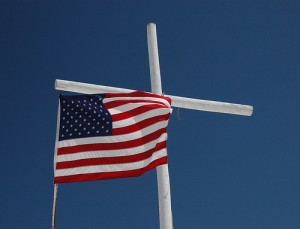Democracy is a form of government in which the supreme power is held completely by the people under a free electoral system. It is derived from the Greek δημοκρατία ([dimokratia] (help•info)), “popular government”[1] which was coined from δήμος (dēmos), “people” and κράτος (kratos), “rule, strength” in the middle of the 5th-4th century BC to denote the political systems then existing in some Greek city-states, notably Athens following a popular uprising in 508 BC.[2] In this form, there were no defined human rights or legal restraints upon the actions of assembly, making it the first instance of “illiberal democracy.”[3]
In political theory, democracy describes a small number of related forms of government and also a political philosophy. Even though there is no universally accepted definition of ‘democracy’,[4] there are two principles that any definition of democracy includes. The first principle is that all members of the society have equal access to power and the second that all members enjoy universally recognized freedoms and liberties. (Wikipedia)
But no human government represents the manner in which the Kingdom of God is governed. The Kingdom of God is more like a theocracy in constitution, yet takes the similar institution of monarchy, and in its intention and interest is like a democracy.
Economy
An economy (or “the economy”) is the realized economic system of a country or other area. It includes the production, exchange, distribution, and consumption of goods and services of that area. The study of different types and examples of economies is the subject of economic systems. A given economy is the end result of a process that involves its technological evolution, history and social organization, as well as its geography, natural resource endowment, and ecology, among other factors. These factors give context, content, and set the conditions and parameters in which an economy functions.
Today the range of fields of study exploring, registering and describing the economy or a part of it, include social sciences such as economics, as well as branches of history (economic history) or geography (economic geography). Practical fields directly related to the human activities involving production, distribution, exchange, and consumption of goods and services as a whole, range from engineering to management and business administration to applied science to finance. All kind of professions, occupations, economic agents or economic activities, contribute to the economy. Consumption, saving and investment are core variable components in the economy and determine market equilibrium.
There are three main sectors of economic activity: primary, secondary and tertiary.
The word “economy” can be traced back to the Greek word “one who manages a household”, derived from οἴκος, “house”, and νέμω, “distribute (especially, manage)”. From οἰκονόμος “of a household or family” but also senses such as “thrift”, “direction”, “administration”, “arrangement”, and “public revenue of a state”. The first recorded sense of the word “economy”, found in a work possibly composed in 1440, is “the management of economic affairs”, in this case, of a monastery. Economy is later recorded in other senses shared by οἰκονομία in Greek, including “thrift” and “administration”. The most frequently used current sense, “the economic system of a country or an area”, seems not to have developed until the 19th or 20th century.
Today most people probably think that the word “economy” was first used merely as a secular term. Actually, “economy” was first used in a theological sense to describe the working of God’s grace in terms of bringing forth His progressive redemptive plan through Christ Jesus in the ages of mankind. Today we use it chiefly to describe the material and monetary side of human life, without even thinking of it as a spiritual term. In the next discussion, we will return to dicussing the context of the Kingdom of God.
This is post is _Part 2_ in the series The Government & the Economy of the Kingdom of God. To continue with this series, click on Pt 3. To use this as a growth tool to better understand your own calling, you might start by reading the explanation of this series and Pt 1.
Photo credit: leebenp

